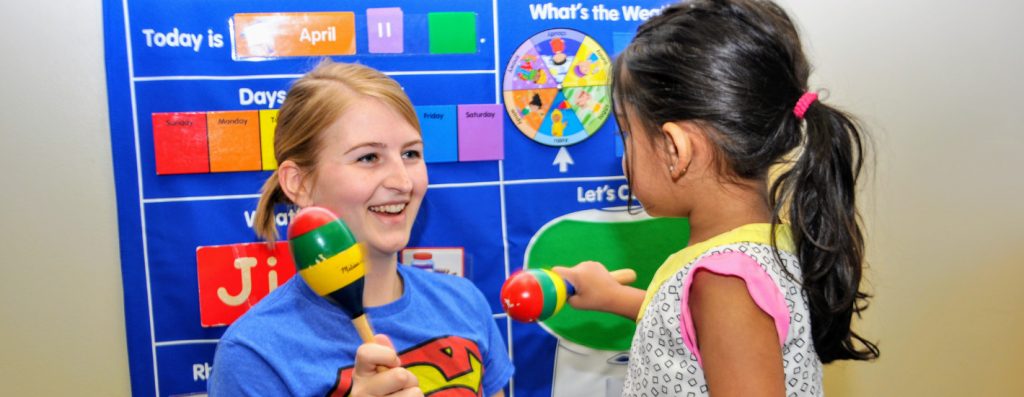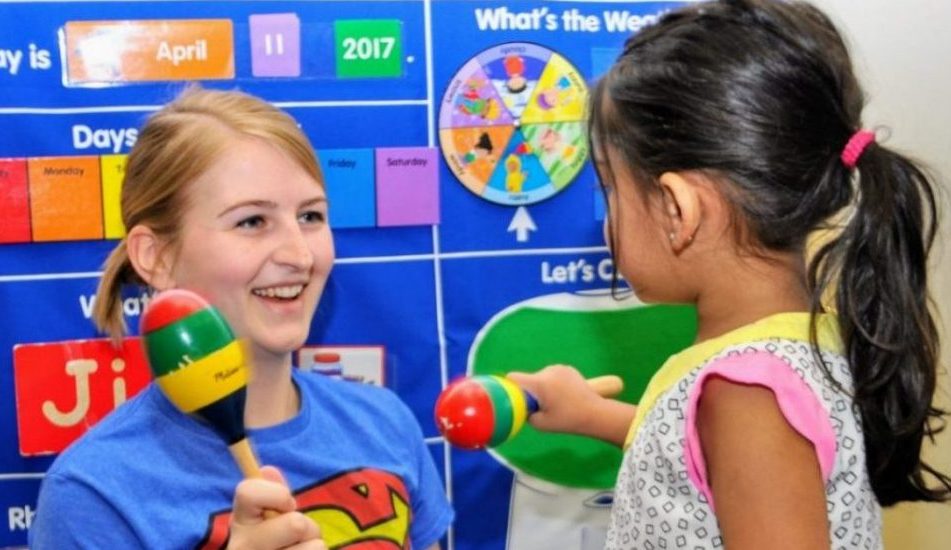

PROGRAM DESCRIPTION:
The Initial Steps Day Treatment Program is an on-site ABA program designed for young children with autism ages 1-6 years. The focus of the Initial Steps Day Treatment program is to provide intensive behavioral and developmental remediation to prevent the need for long-term care and allow for successful transition of the patient to a typical school setting and/or to an outpatient level of care.
PROGRAM GOAL:
The objective of the Initial Steps Day Treatment Program is to enable children to gain developmental skills and appropriate behavioral functioning in order to be successful in their home and eventually, in a typical school setting. The treatment program offers two levels of treatment intensity; (1) a 3.5 hour treatment session, 5 days per week and (2) a 6 hour treatment session, 5 days per week. The vast majority of our patients attend a 6-hour session per day, however; due to very young children still requiring naps during the day, we do offer the shorter treatment session. The program services include 1:1 ABA therapy, group interaction, parent training and coordination of care with medical specialists. Individual ABA therapy covers a range of developmental goals from communication training, to toilet training, to improving fine and gross motor skills, to improving cognitive abilities, to improving behavioral functioning and increasing social functioning. Group interaction addresses adaptive functioning, diet/expanding food repertoires, and social functioning.
POPULATION SERVED:
Children with autism spectrum disorder, ages 1-7 years. The children in this program vary in functioning level from our youngest toddlers who are not yet talking to our preschool/kindergarten-age clients who are becoming independent in many tasks. We do keep our groups, activities and physical space separated by age level, with toddlers together and the preschool/kindergarteners together.
PROGRAM STAFFING:
Staff at the Initial Steps Day Treatment Program include 1:1 therapists, or Registered Behavior Technicians (RBTs), assigned to the child, who is with the child the entire duration of their treatment each day. Our RBTs have bachelor’s degrees in psychology, education or a related field. Some of the RBTs are licensed teachers and intervention specialists. A second level of staff includes Certified Ohio Behavior Analysts (COBAs) who specialize in assessing behaviors, implementing ABA program, and writing and implementing behavior plans. There are several COBAs within the program who oversee the children’s treatment and provide supervision to the RBTs. Finally, a third level of staff includes a pediatric neuropsychologist who supervises the program, oversees all diagnostic and treatment assessments, and coordinates care with physicians.
OTHER INFORMATION:
Parent training is an integral part of the Initial Steps Day Treatment Program and includes individualized family therapy at the Center, parent workshops, and when necessary, working with families in their home with the child present. Training in the home allows for naturalistic teaching of skills in the environment where the child spends the majority of their time, but also allows for generalization of skills learned from the Center into the home. Parent workshops, which are offered monthly from September-May, addresses a wide range of topics from understanding brain development in children with delays, managing and decreasing problematic behaviors, increasing communication opportunities, providing consistent sleep hygiene, building a support system, and much more.
Each therapy space is equipped with video surveillance allowing for improved supervision and support of each child and their programming. Parent consultations at the Center are available for parents to observe treatment and discuss their child’s treatment and progress with the coordinator or director of the program.
Coordination of care with medical specialists is an integral part of the Initial Steps Day Treatment Program. Our staff reaches out to each patient’s pediatrician to share progress and concerns. Medical records are sent to pediatricians or other doctors involved in the child’s care. If a physician decides to prescribe medications, the Knapp Center treatment staff will take data on the behaviors targeted for medication before and during the pharmacotherapy. This information is sent back to the prescribing physician so more informed decisions can be made on prescriptions and dosages.
Each patient in the program is placed on a behavioral reduction treatment plan, if needed, as well as a skill building treatment plan. The behavioral reduction treatment plan outlines those problematic behaviors (i.e. aggression, self-harm, noncompliance, repetitive behaviors) that impede the parent’s ability to manage, teach and parent their child in the home setting. The behavioral reduction treatment plan will outline specific behavioral interventions that will be implemented to replace and/or reduce/eliminate the disruptive behavior. Parents will be taught how to use these procedures in the home setting. The skill building treatment plan outlines individualized specific goals for improving development of the child.
Supervision and assessment occur at regular intervals by a Pediatric Neuropsychologist and Board Certified Behavior Analyst to develop appropriate treatment goals and interventions are selected to ensure optimal progress and success.
